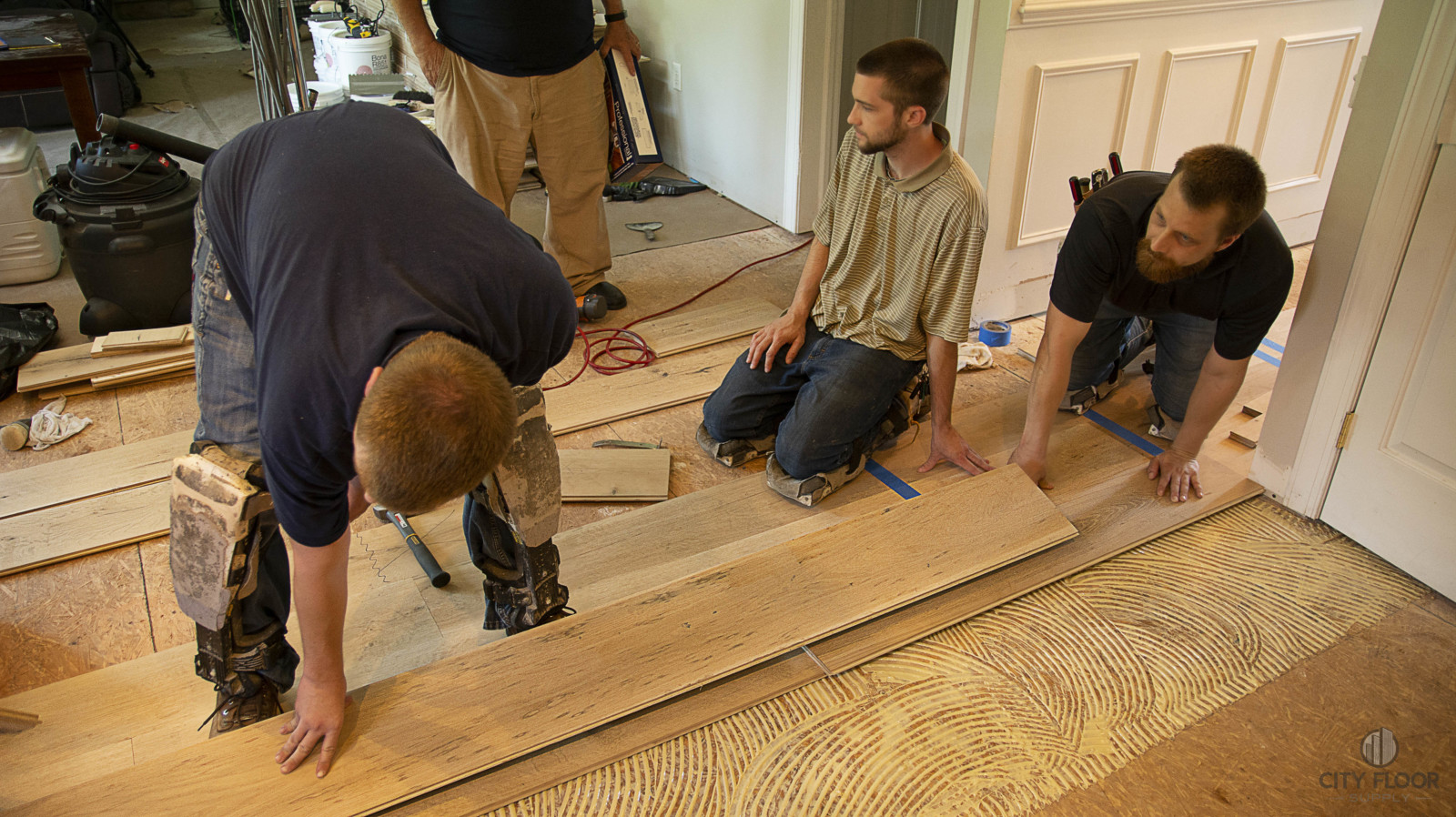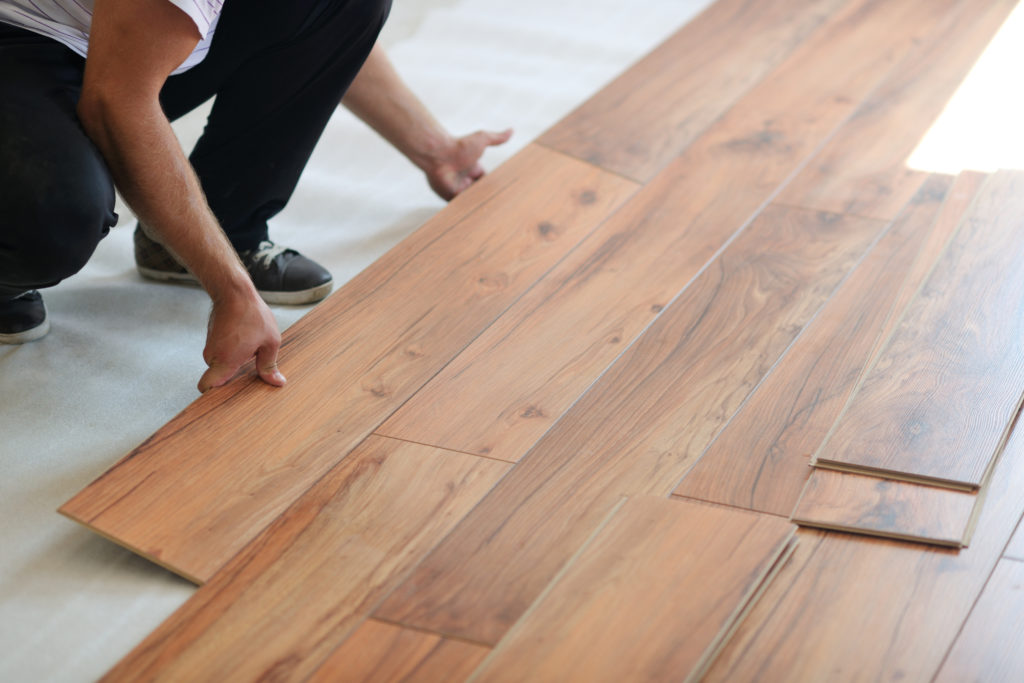What is the cost of installing wide plank floors as compared to other types of flooring, like carpet or vinyl floors? Something you’ll likely notice while doing your research is that installing any type of wood floor is going to be more expensive per square foot than installing carpeting, tile, or vinyl.
Why is this? There are a few factors which contribute to the cost of installing wide plank floors.
Why are wide plank floors more expensive to install?
Simply put, wide plank floors are more expensive to install than the other types of flooring because the installation process for wood floors requires more skill and expertise. If not installed correctly, wide plank floors (or any wood floors, for that matter) can experience a litany of issues, such as peeling finish, cupping, or gapping, to name just a few. While we always recommend that you hire a professional to install wood floors, installing carpeting or vinyl flooring can be considered a DIY project if you have the know-how, cutting your installation costs to virtually zero.
The cost per square foot of a wide plank floor installation will often depend on the area in which you live, and the professionalism and experience of the company you hire, as well as the difficulty of the

installation itself. For example, it’s harder to do a nail and glue installation (as you would with an engineered wide plank floor) compared to a simple nail-in job that you would often perform with strip flooring. In many cases, we recommend installing engineered wide plank floors in particular because they will experience minimal cupping, gapping, and other changes with the season compared to solid wide plank floors.
Installing wide plank floors also requires that more attention is paid to board selection and where to put each plank, as compared to strip flooring (more narrow planks).
When hiring someone to install your floors, make sure that they have experience installing custom wide plank floors. If you’re opting to stain your floors, get the contractor to create samples for you so you can pick from the best. Ask the contractor if they have a portfolio showcasing their past work, or client testimonials.
You may find that if you get multiple quotes for a particular project–which we recommend you do–the cost per square foot can vary widely from contractor to contractor. Be wary of contractors or companies whose installation costs are markedly lower than other quotes or bids that you receive for the project. While this is not always the case, a much cheaper bid can be a red flag. These installers may skip important steps or create other issues that will cost you much more in the long run than hiring a more professional contractor from the start. This is why we recommend taking a look at their portfolio and testimonials.
Longevity: Another reason why wide plank floors cost more
Wide plank floors last much longer than a carpet or vinyl floor. A properly installed and maintained wood floor can last generations. Some colonial homes have wood floors from 100 or 200 years ago, and can even be reclaimed and repurposed into flooring or even something else! Compare this to a carpet that’s older than a decade, which will oftentimes begin to disintegrate.
Wood floors are also more amenable to repairs than other types of flooring. Whereas a vinyl floor or carpet will usually have to be completely replaced if one part of it is damaged, a wood floor can be refinished many times to rejuvenate its look. If a particular spot on the floor experiences excessive damage, you can oftentimes replace the individual boards rather than replacing the entire floor.
As you can see, there are many reasons why installing a wide plank floor will cost more than installing another type of flooring. However, these floors will be well worth it in the long run.
If you’re thinking about installing wide plank floors for your next home or professional project, use our Find a Contractor service on the City Floor Supply website to find a professional, vetted contractor to help you with your project.
